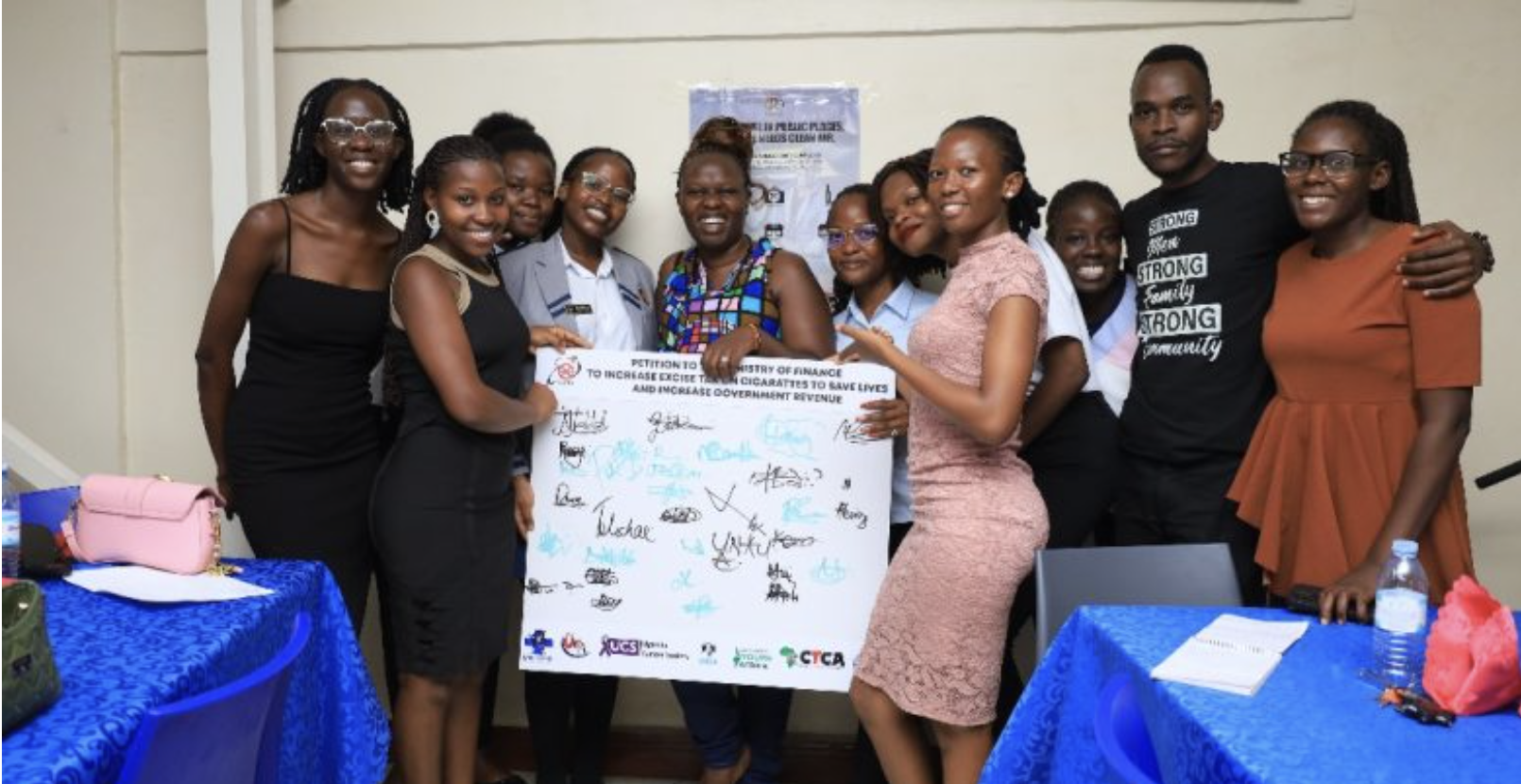Youth-Led Coalition

A coalition of youth-driven organizations is leading a push for stronger tobacco taxation in Uganda as part of a broader strategy to combat the health and economic impact of smoking. The Uganda Tobacco Tax Coalition, which includes Way Forward Youth Africa (WFYA) and several other public health organizations, is advocating for increased excise duties on tobacco products to reduce affordability and protect young people from addiction.
Raymond Bernard Kihumuro, the Executive Director of WFYA, said, “We are here to push an advocacy among young people towards increasing taxation for tobacco.”
He added, “We very well know the harmful effects of tobacco on our health, and so we are working in a coalition with numerous key players, including the Ministry of Health, to reduce the burden of tobacco on Ugandans.”
The coalition, made up of six organizations, is focused on increasing tobacco taxes and strengthening advocacy efforts. Malinga Paddy Derrick, the team lead for the tobacco taxation project at WYFA explained, “This project is about tobacco taxation specifically. We are advocating and implementing ways to increase taxes on all tobacco products in Uganda.”
Malinga highlighted that, “According to the World Health Organization (WHO) framework for tobacco control, excise duty should be above 70%, but Uganda’s taxation has remained stagnant at 30% for seven years.”
While Uganda has made progress with tobacco control policies, including the enactment of the Tobacco Control Act of 2015, fiscal measures remain a weak point. Moses Talibita, the Legal Compliance Officer for Uganda National Health Consumers Organization (UNHCO) emphasized, “We have seen two amendments to tobacco regulations, but we are still waiting for the excise duty amendment. Since 2018, when the tobacco industry challenged the government in the East African Court of Justice, no new amendments have been made to increase taxes on tobacco products.”
Talibita argued, “The incentive for the government in taxing tobacco products is clear: you generate revenue, you reduce demand, and that money can be used to fund health services.”
He urged the Ministry of Finance to implement Uganda’s Domestic Revenue Mobilization Strategy (2019) by increasing tobacco taxes in line with international recommendations. “The Addis Ababa Action Agenda of 2015 advised governments to tax tobacco products because they are directly linked to disease. If we are failing to finance the Heart Institute, the Lung Institute, and the Cancer Institute because of tobacco-related diseases, it is time for the government to act.”
Talibita also stressed that, “When tobacco products are too cheap, people spend on cigarettes instead of supporting their families, paying school fees, or investing in basic needs,” he said.
“Taxing these products properly would not only reduce tobacco use but also ensure that revenue is channeled into improving public health, infrastructure, and education.”
This year’s World No Tobacco Day (WNTD) campaign, themed “Unmasking the Appeal: Exposing Industry Tactics on Tobacco and Nicotine Products,” aligns with the coalition’s advocacy efforts. The campaign aims to shed light on how the tobacco industry targets young people through deceptive marketing.
Despite global efforts to reduce tobacco use, statistics show that 16.4% of adolescent boys in Uganda use tobacco products.
“The government must take a firm stand against commercial interests and prioritize public health,” Talibita concluded.
